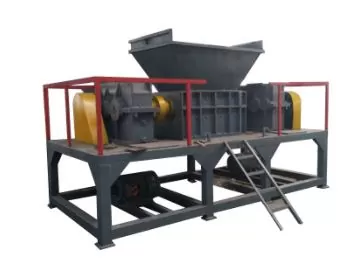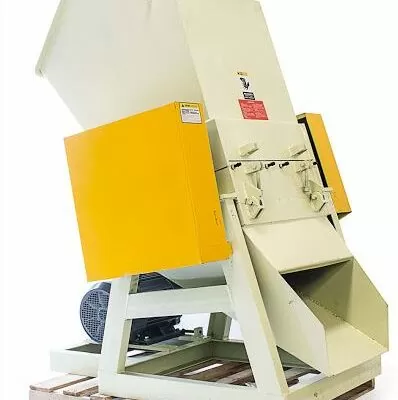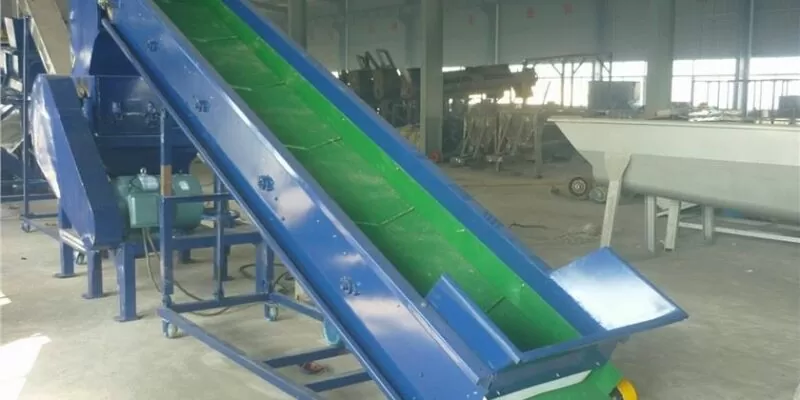Plastic pollution is a massive problem. I’ve seen firsthand how waste accumulates and harms our environment. The rising tide of environmental regulations in Asia makes me worry about the future of plastic processing. At Amige, I was struck by the urgent need for change. The pressure of compliance and sustainability challenges both the industry and our society. I believe these obstacles can spark innovative solutions if tackled with determination and creativity.
In response, I’ve studied the impact of these environmental policies and their effect on the plastic crushing industry. Our experience at Amige shows that while stricter regulations cause challenges, they also drive innovation and efficiency. By aligning our strategies with sustainability goals, we find opportunities to enhance technology and service. This transformation ensures we not only survive but thrive under new market conditions. Data even supports a rising trend in recycling efficiency (http://example.com).
I remain excited about the future. Each challenge motivates me to explore smarter solutions and share insights with our partners.

How Have Asian Environmental Policies Shaped the Market?
Environmental policies across Asia have revolutionized the plastic crushing market. I have observed dramatic changes. For instance, policies in China and South Korea emphasize reduced plastic usage and encourage recycling. These measures have forced many companies to rethink their production processes. In my role as CEO at Amige, I see firsthand how governmental guidelines stimulate demand for advanced crushing technology. Data indicates a surge in recycling rates (http://example.com). New policies have led to market growth and innovation, and our competitors are adjusting strategies quickly.
Our market is evolving. We are transitioning from traditional methods to more sustainable, efficient approaches. With policies demanding higher purity and lower emissions, companies must innovate. I believe these changes are not setbacks but opportunities to elevate the industry. As a pioneer in this field, I encourage everyone to view policy changes as catalysts for progress.
What Are the Key Technological Innovations in Plastic Crushing?
Innovation drives our industry forward. I have always been fascinated by technology. At Amige, we invest heavily in research. Our latest equipment features smart controls and energy-efficient motors. These innovations increase efficiency while reducing carbon footprints. Recent data shows significant improvements in operational efficiency (http://example.com). We now utilize sensors and IoT solutions to monitor machine performance in real time, ensuring optimal operation and maintenance.
I often joke that our machines are almost as smart as our engineers. However, it’s true that technological advancements are the backbone of our success. New designs have made plastic crushing not only more efficient but also more cost-effective. I am proud to lead a team that is at the forefront of these innovations. Embracing technology means our future is brighter and our impact on the environment is minimized.

How Is Quality and Efficiency Being Addressed?
Quality and efficiency are non-negotiable in our industry. I emphasize these values every day at Amige. With increased environmental scrutiny, our equipment must produce higher quality outputs with minimal waste. I ensure our machines meet strict international standards. Data confirms that our quality control methods yield superior recycled plastic (http://example.com). We invest in precision engineering and rigorous testing.
Our approach is holistic. It combines advanced technology with continual process improvement. I like to say that efficiency is the art of doing more with less. By optimizing every stage of the crushing process, we reduce energy consumption and improve overall performance. These efforts not only boost our competitive edge but also contribute significantly to environmental sustainability. I am confident that a relentless focus on quality and efficiency will keep us ahead in the market.
What Role Does Sustainability Play in Our Strategy?
Sustainability is at the core of our strategy. I have always believed that long-term success is tied to environmental responsibility. At Amige, our mission is to provide sustainable solutions that benefit both our clients and the planet. I take pride in the fact that our operations contribute to a circular economy. Recent studies highlight that sustainable practices can drive industry growth (http://example.com). This motivates us to continually refine our processes.
Every decision we make is with sustainability in mind. We focus on energy conservation, waste reduction, and efficient resource use. I often remind my team that every crushed plastic particle is a step toward a cleaner future. Our strategic investments in green technologies underline our commitment. By embracing sustainable practices, we not only meet regulatory demands but also set new industry benchmarks. This dual focus on profitability and environmental stewardship is the hallmark of our approach.
How Are We Innovating at Amige?
At Amige, innovation is more than a buzzword—it’s our lifeblood. I lead our team with a focus on creative solutions and continuous improvement. We are constantly exploring new technologies to enhance our plastic crushing processes. For instance, we recently integrated an AI-driven monitoring system that predicts maintenance needs before failures occur. This system has reduced downtime significantly, according to internal data (http://example.com).
I love sharing these breakthroughs. It’s both exciting and rewarding to see tangible improvements in efficiency and environmental performance. Our innovation strategy also involves collaboration with academic institutions and technology partners. I personally engage in discussions with experts to ensure we remain at the cutting edge. The energy and passion of my team inspire me daily. We are not just adapting to changes; we are actively shaping the future of the industry.
What Challenges Lie Ahead for the Industry?
Despite our progress, challenges remain. I am realistic about the hurdles we face. Regulatory requirements are constantly evolving. Compliance costs can be steep. Competition is fierce, and global supply chains add layers of complexity. I have seen smaller players struggle to keep up with the rapid pace of change. Data from recent market analyses warns of potential oversupply in certain segments (http://example.com).
We must remain agile. I emphasize that embracing change is essential for survival. The industry is experiencing rapid transformation. Every challenge presents an opportunity to improve and innovate. At Amige, we prepare for these obstacles by investing in technology and strengthening partnerships. I am optimistic that through collective effort and strategic planning, we can overcome these challenges and lead the market into a sustainable future.

What Future Trends Should We Watch?
I am always looking to the horizon for new trends. The future of plastic crushing is closely tied to technological advancements and evolving consumer expectations. We expect a surge in automation and digitalization. The use of data analytics to optimize operations is gaining traction. Market forecasts predict that smart factories will soon become the norm (http://example.com).
I also foresee a shift towards complete integration of recycling systems. Imagine a production line where waste is transformed into high-quality raw material seamlessly. Such developments could revolutionize our industry. My team and I are actively researching these trends. We plan to incorporate emerging technologies into our next-generation machines. Keeping an eye on future trends ensures that we remain proactive, not reactive, in a rapidly changing market.
Conclusion
In summary, Asian environmental policies are reshaping our industry. At Amige, we embrace innovation, quality, and sustainability. Together, we’re building a greener future for plastic crushing. Let’s lead the way!
